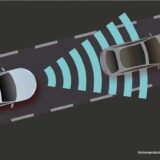Department of Labor extends worker classification comment period
The public now has until mid-December to comment on a rulemaking from the U.S. Department of Labor that would create a federal test to determine if a worker is an employee or independent contractor.
The Labor Department announced on Tuesday, Oct. 25, that it is extending the comment period by 15 days, making the new deadline Dec. 13.
On Oct. 13, the Labor Department’s Wage and Hour Division published a 184-page notice of proposed rulemaking. Unlike AB5, the proposal would analyze several factors and use the “totality of the circumstances” to determine if a worker is an employee or an independent contractor.
The notice originally called for a 45-day comment period, giving the public through Nov. 28.
Soon after, the National Retail Federation requested that the comment period be extended by another 45 days.
“This rule will have a significant impact on the retail industry, as well as the economy nationwide,” the group wrote. As such, NRF does not believe 45 days is an adequate period of time for retailers across the nation to fully analyze the proposal and draft well-informed comments.”
The Labor Department opted to limit the extension to 15 days.
The proposal
The rulemaking would rescind a prior Trump administration rule, which adopted an economic reality test focused on two core factors – control and profit. The Labor Department proposes an economic realities test that requires a totality-of-the-circumstances analysis of multiple factors.
The proposal looks at six factors:
- The opportunity for profit or loss, depending on managerial skill.
- The investments by the worker and the employer.
- The degree of permanence of the work relationship.
- The nature and degree of employer control.
- The extent to which the work performed is an integral part of the employer’s business.
- The worker’s use of skill and initiative.
Listen to truckers
The Owner-Operator Independent Drivers Association is reviewing the proposal and preparing comments. OOIDA President Todd Spencer encourages all truckers to weigh in on the proposal to ensure that the specifics of trucking are considered.
“As we continue to examine every line of the Department of Labor’s proposal, we appreciate that the rule stresses a classification decision should be based on all the circumstances in each specific case,” Spencer said last week. “However, we have concerns with provisions that could ignore specific aspects of the trucking industry and wrongfully deny owner-operators the chance to continue working as independent contractors. We will continue to review the proposal and provide clear feedback to the department on how to address these concerns and ensure the continuation of the owner-operator model within the trucking industry. Small-business truckers and professional drivers are the backbone of the trucking industry, and failing to listen to them would make any rule unworkable.”
The notice has already prompted more than 2,000 comments.
Many truckers are concerned that the proposal would prevent them from continuing to work as a leased-on owner-operator.
“I am a Landstar business capacity operator, and this law would make my work illegal,” Andrew McGlynn wrote. “Contrary to some industries, trucking lease operator relationships can be incredibly favorable. I have saved for years to afford my own truck and now get access to incredible freight with my company. No one is being taken advantage of, and it is voluntary. After moving through a few positions in the industry, I can say with certainty it is the best place to be for a one-truck operator. Please do not pass this ruling.”
Others warned about the predatory nature of lease-purchase agreements in the trucking industry.
“Lease-purchase is horrible,” Juanita Morgan wrote. “I’ve paid into many trucks some owned by these fleet companies that I no longer have or own. All that money gone and still no ownership of a truck … They do treat lease drivers like company (drivers) through the wording of their contracts, and the way I get fired for speaking up. I wish they (would) do away with it, or fix the problems in it. Bring back the independence to the drivers, or get rid of it.”
How to comment
Comments can be made here, or by going to Regulations.gov and entering Docket ID 1235-AA43. LL









